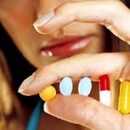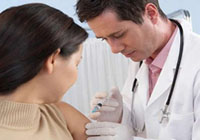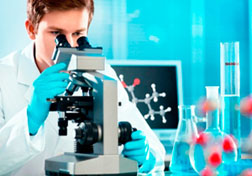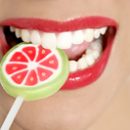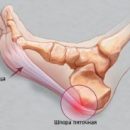Came to pass tests after morning jogging? Sitting in line, chew chewing gum? Result results may surprise you. General and biochemical blood test - how to prepare for these studies? How to pass tests for hormones?
Content
- General blood analysis
- How to pass the tests for hormones
- Blood tests that do not depend on day time
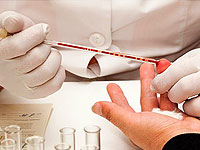 Laboratory studies are an integral part of the diagnosis of various diseases and states. Sometimes there are no external manifestations of the disease, and the blood and other biological environments are already reacting to pathological processes in the body, and the change in its indicators signals the disadvantaged.
Laboratory studies are an integral part of the diagnosis of various diseases and states. Sometimes there are no external manifestations of the disease, and the blood and other biological environments are already reacting to pathological processes in the body, and the change in its indicators signals the disadvantaged.
Of course, on the basis of alone analyzes, the diagnosis does not put, the clinical picture of the disease, the results of the tests of functional diagnostics and additional research methods. However, the value of laboratory diagnostics is difficult to overestimate. In assessing WHO, during laboratory research, the doctor receives up to 60-80% of the necessary information about the patient. Analyzes suggest the direction of diagnostic search, allow to identify diseases in the early stages of development, prescribe medicines and monitor the effectiveness of the therapy. How to pass tests? Let's focus on the most important — in preparation for blood test.
General blood analysis
Clinical blood test is the most common laboratory study, giving a doctor the most common, but equally important information on the state of the patient's health. Blood For general analysis of blood is often taken from the finger and special training before visiting a procedural cabinet is required. It is enough of a 2-3 hour break after the last meal and restrictions on the use of bold products per day before analyzing.
Biochemical blood test: how to prepare for his surrender?
Biochemical blood test — A wide concept implied by the study of blood plasma on the content of various biochemical compounds in it, such as sugar, cholesterol, bilirubin, proteins, various hormones, trace elements and other substances.
For biochemical research, venous blood is taken from the finger, as in the case of the determination of the level of glucose, or blood from large veins. Blood usually hand over from 7 to 9 am, on an empty stomach, that is, after 8-12 hours interruption between meals. In the evening, on the eve of the study, it is recommended to restrict ourselves to a light dinner, in the morning you can drink a glass of water, other drinks are categorically prohibited.
In determining the level of cholesterol and lipoproteins 1-2 days before the analysis, it is necessary to exclude the use of fried and oily food, while not only oils are excluded, but products containing hidden fats, such as sausage, cheese, sour cream, fatty milk, kefir, cottage cheese, baking , sweets.
If you have to give blood on glucose, it should be remembered that even containing sugar chewing gum and toothpaste can affect the results of biochemical blood test results. To prepare for the study, you need to make adjustments to the morning hygienic procedures. A laboratory doctor should be warned if you are taking oral contraceptives, diuretic products and other medicines. If possible, it is better to abandon the reception of drugs on the eve of the study, but this should be discussed with the attending physician.
At least 12 hours before blood is required to exclude alcohol, physical workouts, per hour — smoking. If you are excited, excited, at first calm down and only after 15 minutes enter the cabinet of a laboratory. Blood test for ACTH, cortisol, a somatotropic hormone requires full calm, sit in the corridor 30-40 minutes and relax to the hormonal background stabilized.
It is not recommended to take blood tests after radiography, physiotherapeutic procedures and any instrumental research, after a bath, visiting a sports hall or a massage cabinet.
Some analyzes require a diet adjustment, for example, when studying blood on the content of bile pigments, it is important to exclude foods from the diet, containing dyeing substances (beets, carrots, citrus, pumpkin). Pork chops eaten in the evening can affect the level of uric acid and potassium in the blood.
How to pass the tests for hormones
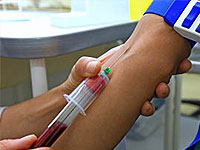 The hormonal background is unstable, various external and internal factors affect him, it changes depending on the time of day, the day of the menstrual cycle (in women), age, health and therapy. For the maximum accurate determination of the level of hormones in the blood, you need to follow the recommendations of the doctor.
The hormonal background is unstable, various external and internal factors affect him, it changes depending on the time of day, the day of the menstrual cycle (in women), age, health and therapy. For the maximum accurate determination of the level of hormones in the blood, you need to follow the recommendations of the doctor.
At the level of sex hormones, men and women affects sexual excitement, so the day before the analysis you need to withdraw from sex.
The level of sex hormones in women determine at least twice over the menstrual cycle, first and second phases. Usually the attending physician explains how to pass the tests to hormones and accurately indicates what day the cycle is to appear in the laboratory. Otherwise, preparation for the study is similar to the biochemical blood test.
Blood on sex hormones usually hand over in the morning, on an empty stomach, like blood on the hormones of the thyroid gland. Before analyzing hormones «Shields» It is necessary for 2 weeks to comply with a diet, eliminating iodized cook salt, seafood, fish and bread.
Blood tests that do not depend on day time
- Analyzes for antibodies to infections and genetic pathology are handed over at any time of day, regardless of meals.
- PCR — Diagnosis of syphilis, mycoplasmosis, ureaplasmosis, determination of oncomarkers, blood groups, rees-factor, autoantile and prenatal screening are possible 3-4 hours after meals.
Attention! Diagnostic laboratories can use various chemical reagents for research, equipment and units of measurement. Therefore, repeated tests, to avoid confusion and errors, it is better to carry out in the same institution.

